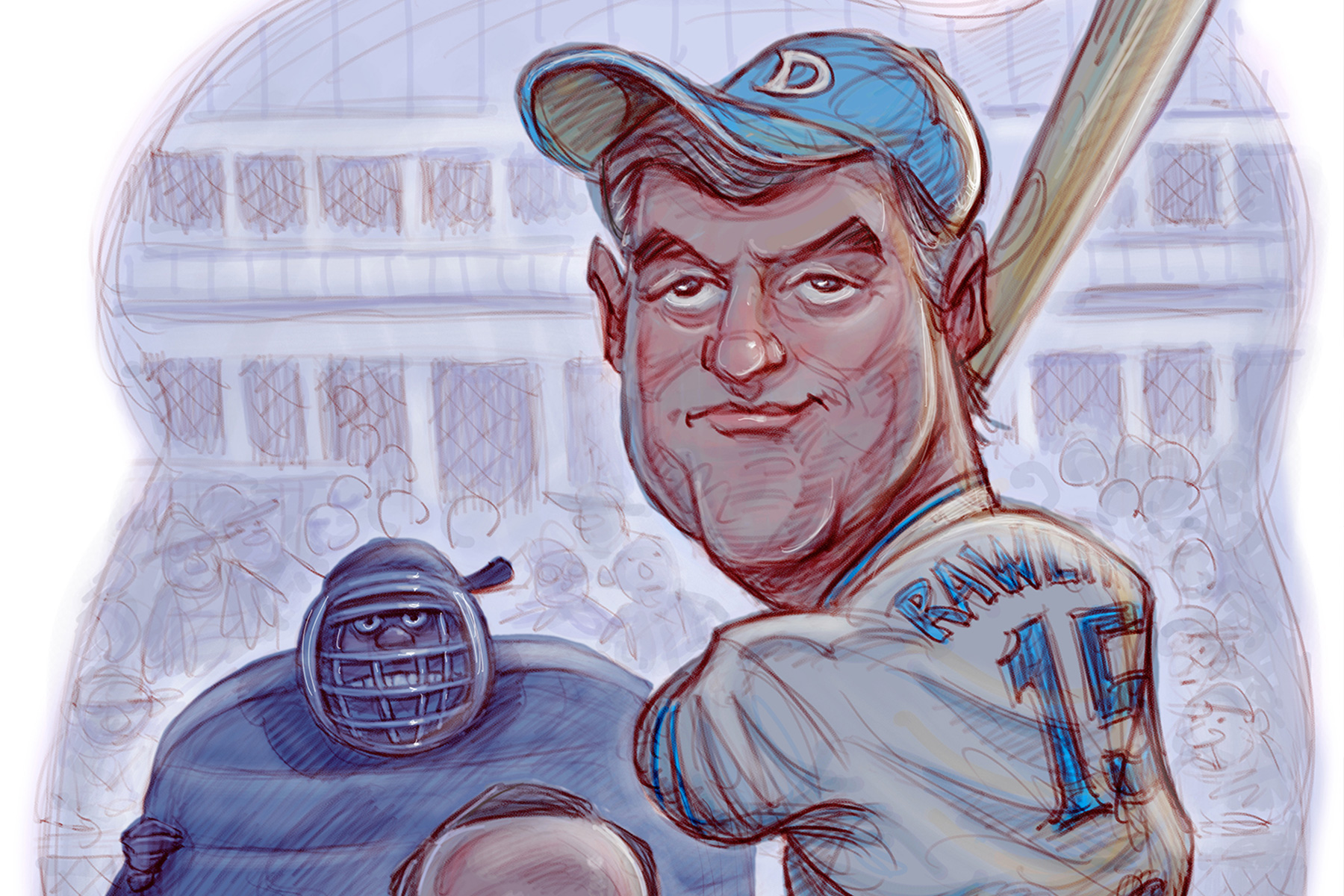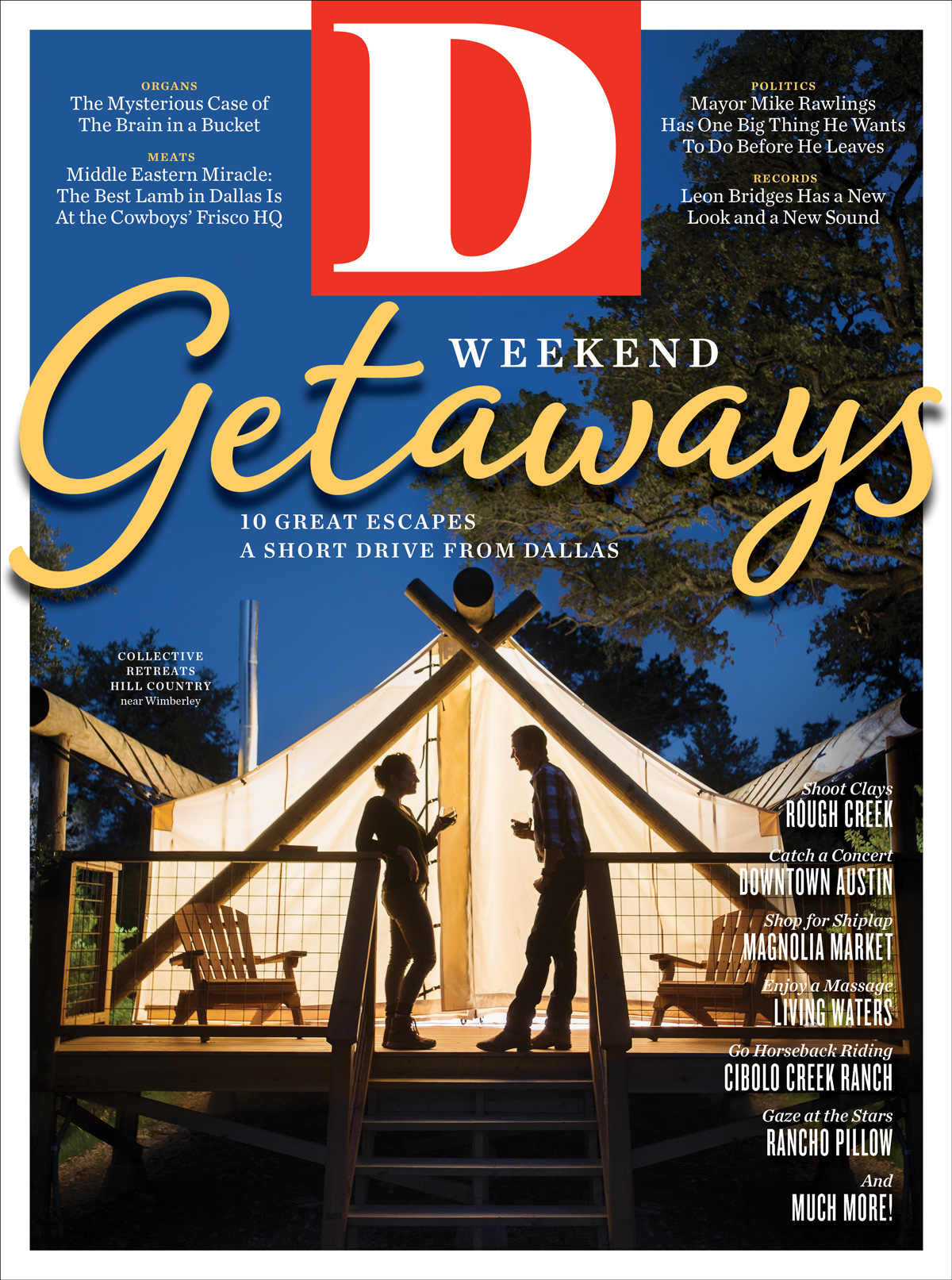Mayor Mike Rawlings is laughing. Or choking. Both, it seems. I suggested to him that the one big thing he hopes to achieve before his term ends next May—convincing a City Council majority and Dallas voters that we should move municipal elections from May to November—has a large roadblock. It would make the elections too political.
“Too political?” he yelps, fighting for air. “Too—too political? What, what, what—so, it’ll make us more pregnant? Is that what you’re saying?”
It takes me a moment to realize my mistake. I didn’t mean that political posturing, chicanery, and bloviating would for the first time permeate City Council or school board races. Heaven forfend. I meant that the races, while still nonpartisan, would be surrounded up- and down-ballot by Democrats and Republicans, and the nature of the municipal races would change accordingly.
“I’m sorry. I meant too partisan,” I say. Thus, with my correction, was the mayor’s life saved.
“Oh. Too partisan. Right.” He overcomes the asphyxiation, and he dismisses the argument. “I don’t think that’s the case. These are down-ballot elections.”
With that, the mayor shows one reason why he is enormously popular with constituents and why he is so maddening to some politicians: there’s not a lot of hand-wringing nuance in his positions. In this case, he wants to move municipal elections to November so that more people vote in them than they do in May elections. Boom. Nailed it. “The only reason someone would not want to do this?” he asks rhetorically. “They do not want to lose political power.”
That’s certainly one big reason why someone wouldn’t want to do it. There are politicians and campaign managers who have figured out how to succeed under the current structure, one in which the path to victory is paved with relatively few voters. They will try hard to paint Rawlings’ effort as a Dallas Deep State move designed to aid the mayor’s cronies. (Don’t ask me how that makes sense. I just know they will frame it this way; they always do.) But there are others who have legitimate concerns about the partisanship that would infuse November races, despite the mayor’s waving away such protests, and they will fight this effort on a more honest playing field.
That said, I hope even those good-hearted combatants lose this fight. Because the mayor is right. We should move Dallas’ municipal elections to November.
“I was coming to the end of my time,” Rawlings says, explaining how he decided to make this issue one he was going to focus on during his last year in office. “I realized we needed a new system to fix this thing. And I just thought I could copter up a bit and say how we could do that.”
Besides inventing a delightful new phrase that I’m going to use for the rest of my days, the mayor’s explanation also hints at why he believes this effort is so important. The current May election system is broken, he feels, because we have such an incredibly low turnout for those spring races.
Citywide turnout for last year’s May election was 7.6 percent. That was a big bump from the 2015 election, in which Rawlings was easily re-elected, when 6.7 percent of eligible voters turned out. These numbers ranked Dallas last in turnout in a 2016 study of the 30 largest U.S. cities titled “Who Votes for Mayor?” The study, which put the median turnout rate at 20 percent, called Dallas’ rate “abysmally low.”
Compare that to the nearly 60 percent turnout in Dallas County for the presidential 2016 November elections or the 34 percent from the 2014 midterm elections. (We’re comparing county and city turnouts, which is imperfect, but the percentages don’t stray far.) If we moved the elections to November, we’d want them in even-numbered years to reap the benefits of high turnout, because odd-numbered years in November produce Dallas County turnouts about as awful as May elections: 6.5 percent in 2017 and 9 percent in 2015.
“It’s the basic premise that I want to engage as many citizens as possible,” Rawlings says. “That is my North Star on this issue.”
I wrote about this in 2014, when I suggested Dallas ISD’s Home Rule Commission ask voters to move school board elections to November. I figured that more votes cast for trustees would bring us better trustees and better student results. The numbers in trustee races are even worse than in Council races. Example: DISD trustee Miguel Solis, a high-profile, successful, smart politician, was re-elected in May 2014 with just 515 votes—which represented a landslide 68 percent of the 756 total votes cast in his race.
“We need more people voting, we need younger people voting, and we need to make it easier to vote.
Mayor Mike Rawlings
Then and since, many elected officials and assorted politicos have told me that even if they’re not opposed to a different approach, they don’t think November elections are the fix. “We can’t repeat past mistakes,” Solis says. “Progressive-era municipal reforms aimed at stripping local elections of partisanship is the reason we have nonpartisan May elections. These reforms, though far from perfect, were instrumental in shifting interest-driven politics from rigid party platitudes to local group demands—neighborhood associations and parent-teacher organizations—placing the destiny of communities into the hands of the very people impacted by local decisions.”
Solis points to the recent DISD school board race between Lori Kirkpatrick and Dustin Marshall, in which state party resources went into ousting Marshall on rigid partisan lines. “Sacrificing the integrity of a local election for price point [November elections would be cheaper] and sheer turnout may have unintended consequences. The reinsertion of partisanship could pose a cancer to local democracy.”
A few things about that. Yes, it would be great if voters were more engaged in May, a time when they could focus on municipal elections and not be distracted by highly partisan races for president, governor, on down the line. But they won’t vote in May. We have years of data that support this statement. Lucky for us, people will vote in November. Which shouldn’t stop anyone from undertaking measures to increase engagement. Please do so! Just do it in November, when we know we’ll have five to 10 times more voters going to the polls. Just because there are more races going on that I care about doesn’t mean I can’t inform myself about my City Council race.
Besides, as Solis notes, May elections are already soiled by partisanship, with Republican and Democratic organizations working hard to “fill their bench” by placing people in theoretically nonpartisan municipal elected offices. Last year, in a column detailing just how partisan Texas municipal races are becoming, Texas Monthly’s Paul Burka concluded that “both of the state’s major political parties are now, for better or worse, engaged in bringing partisan politics to local governance.”
Another canard about November races is that they bring out ignorant voters. A fundraiser for local races rolled her eyes when I told her I generally favor a move to November elections. She said, “You mean you want voters who are even more uninformed?”
No, I don’t. What I want is to be installed as the president of a 1950s-style Citizens Council so that I, Eric Celeste, can handpick our leaders. Absent that brilliant development, I want to remove, as much as possible, the influence of special interests, which means getting a large enough pool of voters that the influence of such groups is diminished. Besides, the idea that May voters are “informed”—well, I’d love to test that theory.
I’d also love more voters who better represent Dallas demographics. The median age of a Dallasite is about 32, which is much closer to the traditional age of folks who vote in November elections than May elections (which draw voters about 20 years older). Also, it would be nice to see more black and brown voters, given that we’re a majority-minority city.
Other cities have already proven this move works. Austin voted in 2012 to change its city charter and hold November municipal elections. Turnout went from 10.7 percent in May 2012 to 40.4 percent in November 2014. San Antonio saw those numbers and is right now debating a move to November municipal elections. (Houston holds its City Council and mayoral elections in November, but only every four years and only in odd-numbered years, which is—unsurprisingly, given that it’s Houston—very stupid.)
“The bottom line is, the system we have has got to change,” Rawlings says. “We need more people voting, we need younger people voting, and we need to make it easier to vote. Besides my ongoing focus on southern Dallas and poverty, this is what I’m going to put my shoulder against.”
To which I have to say: COPTER UP, DALLAS!






